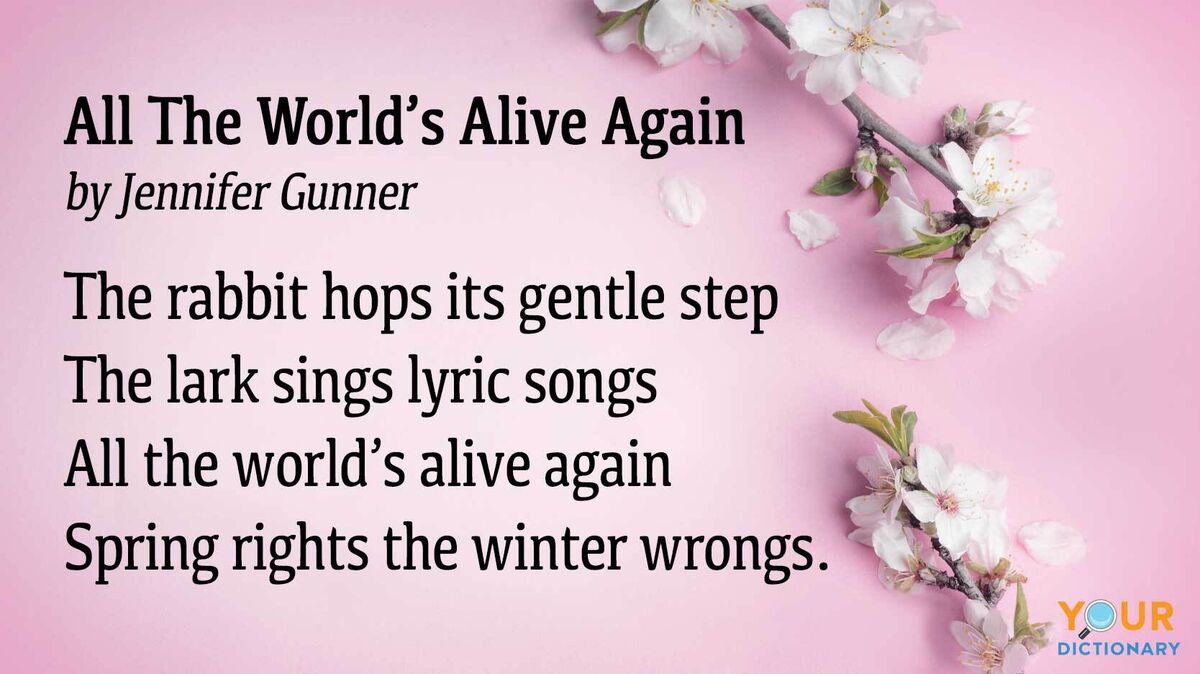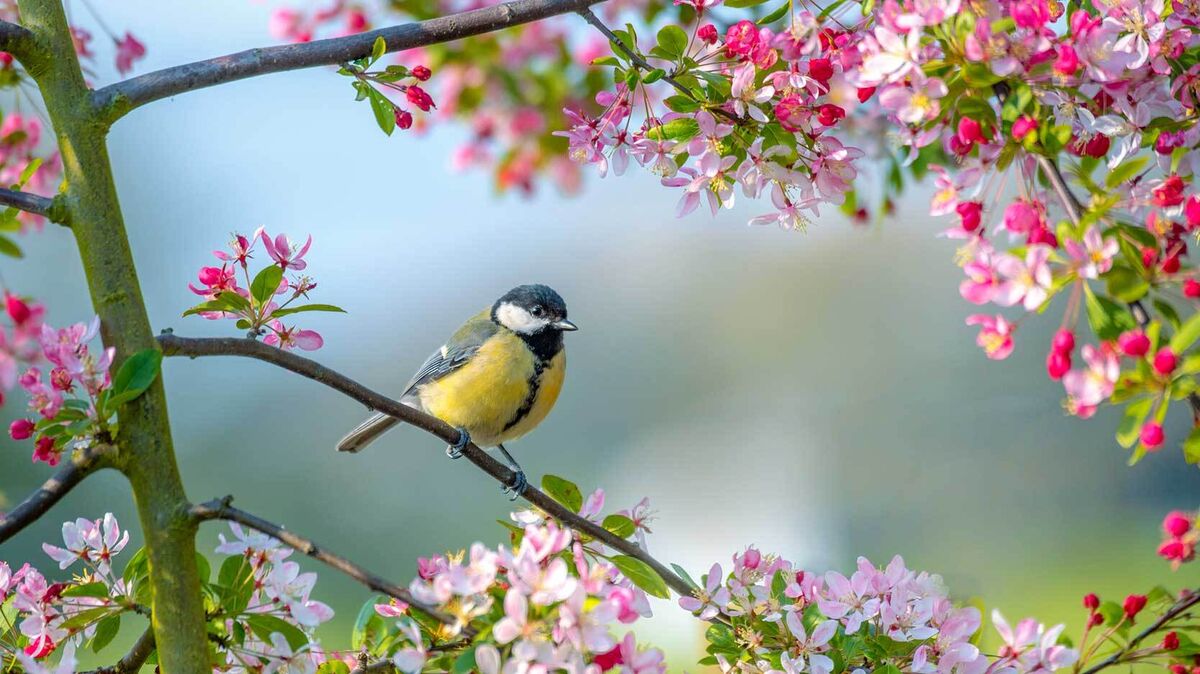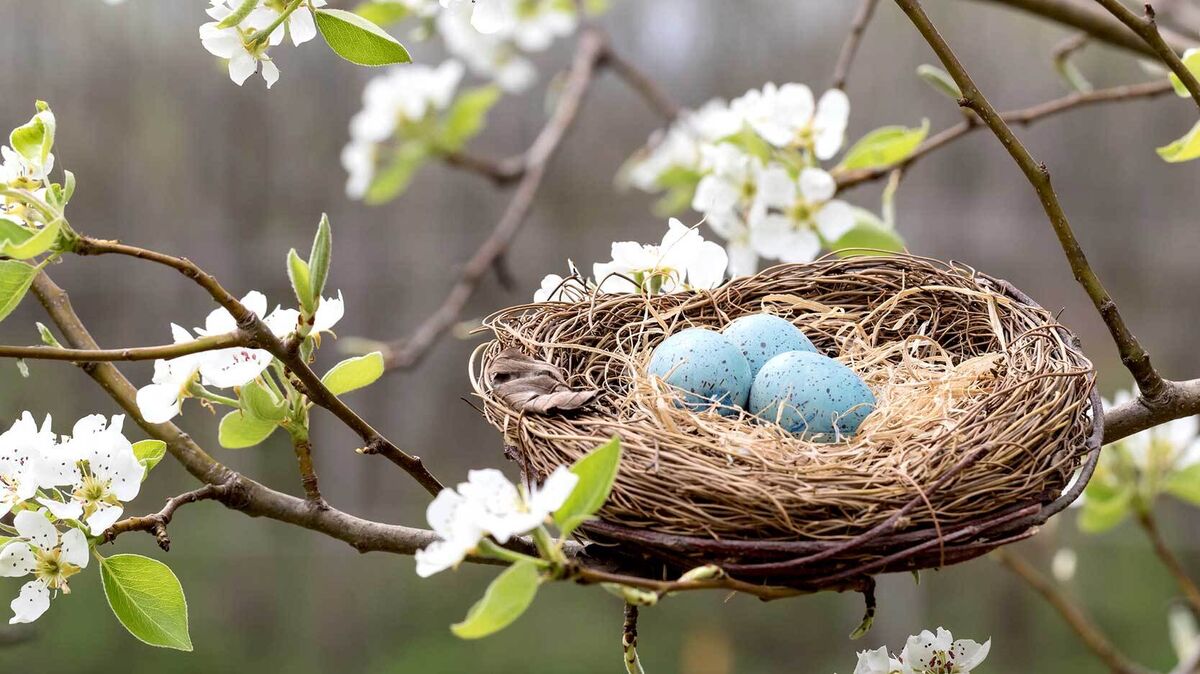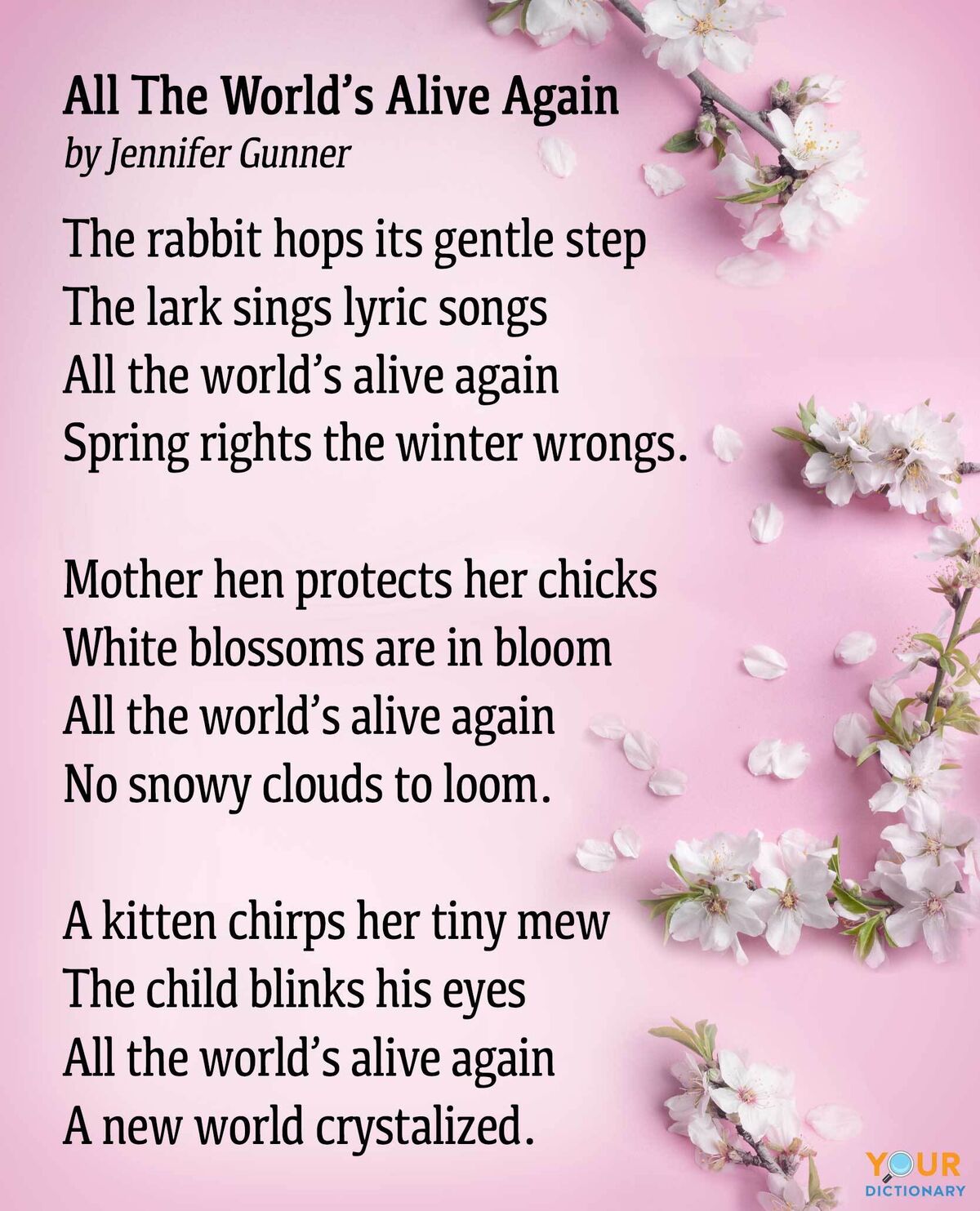
Spring is in the air, so it's a great time to bring the season into your language arts learning! Poetry is a beautiful way to celebrate this time of renewal and growth around the world. Take a look at these spring poems that feel like a breath of fresh air.
Classic Poems About Spring
Springtime evokes all kinds of emotions for different people. Some see the ending of winter and the promise of a new beginning, while others feel mocked by the beauty of the world against the grief in their hearts. No matter how spring mornings make you feel, you're sure to find a classic poem about spring that speaks to your feelings.
Spring by William Blake
If you're looking for the gentle childlike feeling of spring, look no further than William Blake's classic poem "Spring" from his collection Songs of Innocence. It describes the joy of welcoming in the new year with the sights and sounds of the spring season.
"Sound the flute!
Now it’s mute!
Bird’s delight,
Day and night,
Nightingale,
In the dale,
Lark in sky,—
Merrily,
Merrily merrily, to welcome in the year.
Little boy,
Full of joy;
Little girl,
Sweet and small;
Cock does crow,
So do you;
Merry voice,
Infant noise;
Merrily, merrily, to welcome in the year.
Little lamb,
Here I am;
Come and lick
My white neck;
Let me pull
Your soft wool;
Let me kiss
Your soft face;
Merrily, merrily, to welcome in the year."
Even the imagery of the soft, cuddly lamb makes the reader think of spring. It's a perfect poem to capture the feeling of a new beginning to the year.
A Light exists in Spring by Emily Dickinson
Emily Dickinson was not known for a sunny outlook on life. However her poem "A Light exists in Spring" does acknowledge the optimism of the season — however brief it may be. She describes the light as existing during this time alone, and when time passes, leaving us without it.
"A Light exists in Spring
Not present on the Year
At any other period –
When March is scarcely here
A Color stands abroad
On Solitary Fields
That Science cannot overtake
But Human Nature feels.
It waits upon the Lawn,
It shows the furthest Tree
Upon the furthest Slope you know
It almost speaks to you.
Then as Horizons step
Or Noons report away
Without the Formula of sound
It passes and we stay –
A quality of loss
Affecting our Content
As Trade had suddenly encroached
Upon a Sacrament."
Dickinson describes time and springtime as briefly approaching us and then slipping away. She doesn't give the reader time to relish the season before it's gone again in "a quality of loss."
When Lilacs Last in the Dooryard Bloom’d by Walt Whitman
Walt Whitman's "When Lilacs Last in the Dooryard Bloom’d" uses springtime as a backdrop to an elegy for Abraham Lincoln, much like he uses a ship in his more famous poem "O Captain! My Captain!" Read the first few stanzas of Walt Whitman's lovely poem.
"When lilacs last in the dooryard bloom’d,
And the great star early droop’d in the western sky in the night,
I mourn’d, and yet shall mourn with ever-returning spring.
Ever-returning spring, trinity sure to me you bring,
Lilac blooming perennial and drooping star in the west
And thought of him I love.
O powerful western fallen star!
O shades of night—O moody, tearful night!
O great star disappear’d—O the black murk that hides the star!
O cruel hands that hold me powerless—O helpless soul of me!
O harsh surrounding cloud that will not free my soul.
In the dooryard fronting an old farm-house near the white-wash’d palings,
Stands the lilac-bush tall-growing with heart-shaped leaves of rich green,
With many a pointed blossom rising delicate, with the perfume strong I love,
With every leaf a miracle—and from this bush in the dooryard,
With delicate-color’d blossoms and heart-shaped leaves of rich green,
A sprig with its flower I break."
The president's assassination in April resonates with Whitman, who declares that he "shall mourn with ever-returning spring." He juxtaposes the beautiful imagery of springtime with the "black murk that hides the star," a familiar feeling to anyone immersed in grief amidst a beautiful world.
After the Winter by Matsuo Basho
The art of haiku poetry incorporates natural imagery to evoke a deeper emotion. Matsuo Basho, a Japanese haiku master, uses this technique in many haiku poems about spring, including the following example from "The Spring Haze."
"The spring haze.
The scent already in the air.
The moon and ume."
In only seventeen syllables, the reader can clearly see and smell the aroma of springtime. A spring night with a moon in the haze is a particularly evocative image.

The Spring by Thomas Carew
Thomas Carew's "The Spring" celebrates the ending of winter and the "sacred birth" of spring. But unfortunately for him, the winter isn't over everywhere.
"Now that the winter's gone, the earth hath lost
Her snow-white robes, and now no more the frost
Candies the grass, or casts an icy cream
Upon the silver lake or crystal stream;
But the warm sun thaws the benumbed earth,
And makes it tender; gives a sacred birth
To the dead swallow; wakes in hollow tree
The drowsy cuckoo, and the humble-bee.
Now do a choir of chirping minstrels bring
In triumph to the world the youthful Spring.
The valleys, hills, and woods in rich array
Welcome the coming of the long'd-for May.
Now all things smile, only my love doth lour;
Nor hath the scalding noonday sun the power
To melt that marble ice, which still doth hold
Her heart congeal'd, and makes her pity cold.
The ox, which lately did for shelter fly
Into the stall, doth now securely lie
In open fields; and love no more is made
By the fireside, but in the cooler shade
Amyntas now doth with his Chloris sleep
Under a sycamore, and all things keep
Time with the season; only she doth carry
June in her eyes, in her heart January."
He laments that not even the warm sun of springtime can melt the "marble ice" in the heart of his love. Though it may be spring everywhere else, "in her heart January."
[in Just-] by E.E. Cummings
For a look at the glorious fun of spring, you'll only need E.E. Cummings' poem "[in Just-]" for inspiration. On the surface, it seems like a whimsical and playful approach to the season.
"in Just-
spring when the world is mud-
luscious the little
lame balloonman
whistles far and wee
and eddieandbill come
running from marbles and
piracies and it's
spring
when the world is puddle-wonderful
the queer
old balloonman whistles
far and wee
and bettyandisbel come dancing
from hop-scotch and jump-rope and
it's
spring
and
the
goat-footed
balloonMan whistles
far
and
wee"
Cute phrases like "just-Spring" and "puddle-wonderful" evoke that magical feeling of springtime as a child. However, that creepy "goat-footed balloonMan" is there to tempt the children away from their fun.
Sonnet 98 by William Shakespeare
If you're looking for a beautiful expression for any occasion, chances are that William Shakespeare has written a sonnet for it. That's the case in "Sonnet 98," where the speaker cannot adore the bountiful beauty around him because he is parted from his love.
"From you have I been absent in the spring,
When proud-pied April, dressed in all his trim,
Hath put a spirit of youth in everything,
That heavy Saturn laughed and leaped with him.
Yet nor the lays of birds, nor the sweet smell
Of different flowers in odour and in hue,
Could make me any summer’s story tell,
Or from their proud lap pluck them where they grew:
Nor did I wonder at the lily’s white,
Nor praise the deep vermilion in the rose;
They were but sweet, but figures of delight
Drawn after you, – you pattern of all those.
Yet seem’d it winter still, and, you away,
As with your shadow I with these did play."
The gorgeous colors of spring, such as "lily's white" and "deep vermillion," are no match for the speaker's melancholy. He only sees the season as "winter still."

Lines Written in Early Spring by William Wordsworth
"Lines Written in Early Spring" by William Wordsworth captures the beauty of spring with songbirds and blooming flowers. However, the lovely scene around the speaker reminds him of how man cannot live in the same harmony.
"I heard a thousand blended notes,
While in a grove I sate reclined,
In that sweet mood when pleasant thoughts
Bring sad thoughts to the mind.
To her fair works did Nature link
The human soul that through me ran;
And much it grieved my heart to think
What man has made of man.
Through primrose tufts, in that green bower,
The periwinkle trailed its wreaths;
And ’tis my faith that every flower
Enjoys the air it breathes.
The birds around me hopped and played,
Their thoughts I cannot measure:—
But the least motion which they made
It seemed a thrill of pleasure.
The budding twigs spread out their fan,
To catch the breezy air;
And I must think, do all I can,
That there was pleasure there."
The speaker concludes that the pleasure of springtime can, indeed, come to the world of mankind — if only he can "do all I can." It's a lovely reminder that the beauty around us can be infused in our interactions as well.
Now fades the last long streak of snow by Alfred Lord Tennyson
Alfred, Lord Tennyson's elegy In Memoriam A. H. H. was written in memory of Arthur Henry Hallam, a friend of the poet. Canto CXV, also known as "Now fades the last long streak of snow," describes spring awakening everywhere in the world, even in his heart.
"Now fades the last long streak of snow,
Now burgeons every maze of quick
About the flowering squares, and thick
By ashen roots the violets blow.
Now rings the woodland loud and long,
The distance takes a lovelier hue,
And drown’d in yonder living blue
The lark becomes a sightless song.
Now dance the lights on lawn and lea,
The flocks are whiter down the vale,
And milkier every milky sail
On winding stream or distant sea;
Where now the seamew pipes, or dives
In yonder greening gleam, and fly
The happy birds, that change their sky
To build and brood; that live their lives
From land to land; and in my breast
Spring wakens too; and my regret
Becomes an April violet,
And buds and blossoms like the rest."
The speaker likens his regret and grief to an "April violet." It blooms just like the flowers around him, bringing a new meaning to the spring season.
Original Poems About Spring
Reading these poetic classics is a wonderful way to find the right way to welcome spring. But if they haven't hit quite the right note, use these original poems by to inspire your own poems about spring.
All The World's Alive Again by Jennifer Gunner
No matter the tone, most spring poetry uses pastoral imagery to set the scene of a fresh beginning. Try out your own spring poetry using the same type of descriptions.

Poem 2 by Jennifer Gunner
If the spring season means as much to you as it did to Walt Whitman or Matsuo Basho, you can use the imagery to reflect deeper emotions. Try contrasting the sweetness of spring with the senses from other seasons, such as summer.
It was spring when her eyes flicked my way
she pulled a cherry blossom from her hair as the smell of
honeysuckles wafted between us and warm rain cascaded
and the fragile seeds of our love took root
It was summer when her gaze lifted away
sixty sherbet sunsets setting the sky aglow
as the heat of the August air warmed
the chill of my empty hand
The Sights and Words of Spring
Whether spring is "puddle-wonderful" or "ever-returning" and mournful, there's a poem with gorgeous flowers and mild weather for you. If you're interested in finding additional natural imagery, read more examples of imagery in literature and songs. For the grammar side of things, you can determine whether you should capitalize seasons or not. Then, you can write your own spring poems using spring vocabulary words. Next, it's time to move onto another season with summer poems.